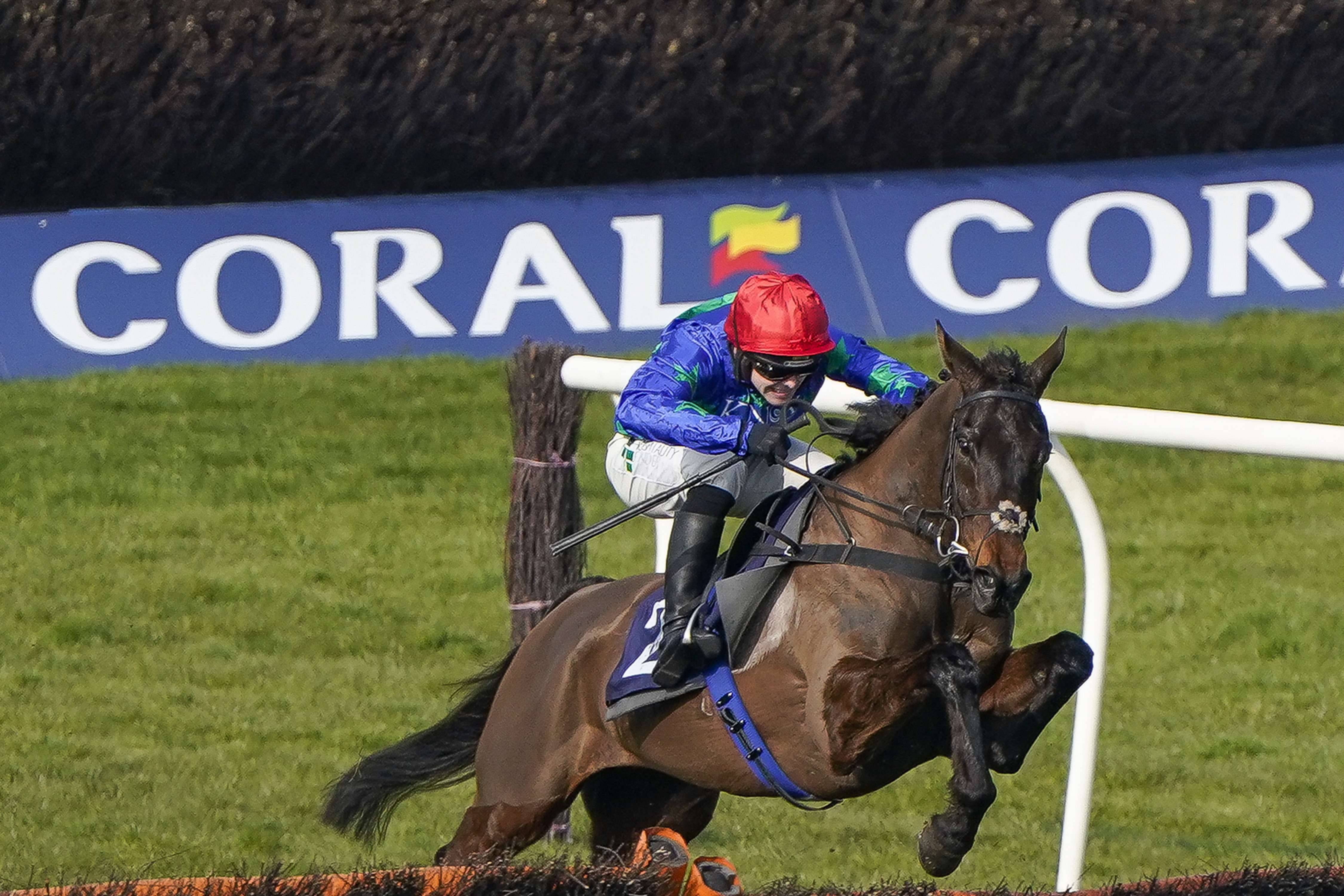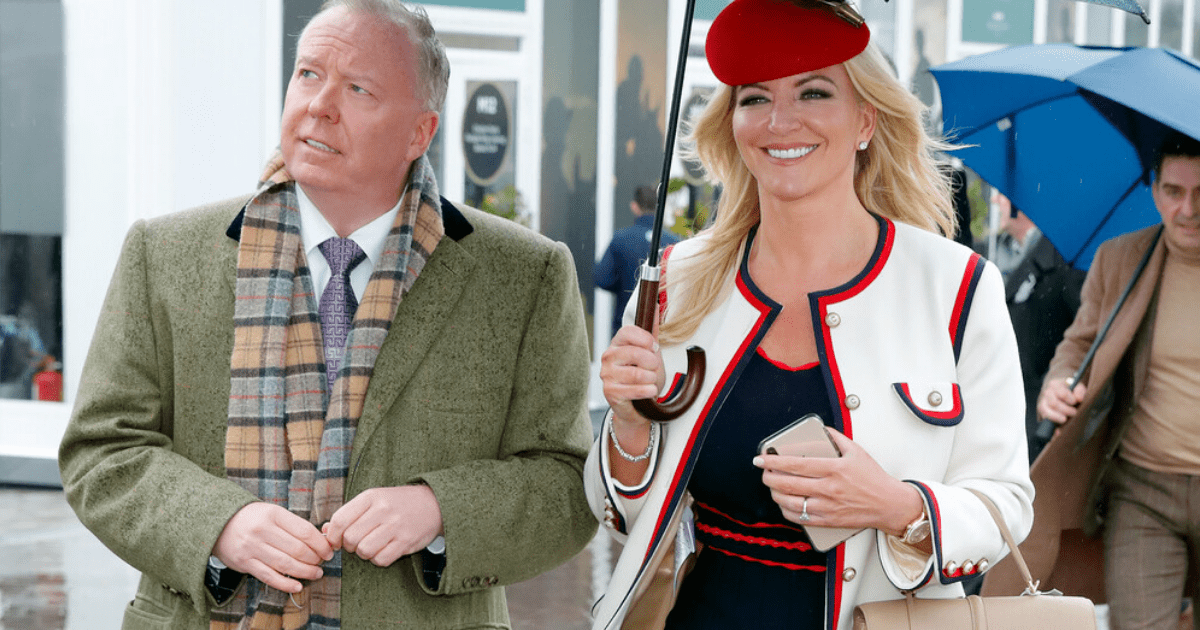Controversial Inclusion
There was outrage as Monbeg Genius, a horse owned by scandal-hit bra tycoon Michelle Mone and her husband, emerged as a top contender in the upcoming Grand National.
Assets Frozen
Mone and Doug Barrowman have faced asset freezes amid an investigation into an alleged £200 million PPE fraud, raising concerns about the horse's participation.
Racing Community Reacts
Industry insiders and racing correspondents have expressed dismay at the potential scenario of Mone's horse winning the prestigious race, calling for clarity from the British Horseracing Authority.
Unwelcome Spotlight
The controversial duo's involvement in the event has cast a shadow over the upcoming race, with concerns raised about the optics of their horse emerging victorious.

Investigation Ongoing
Amid ongoing probes into fraud and bribery allegations related to PPE supply, Mone and Barrowman have had millions of pounds in assets frozen, including their home and bank accounts.
Future Uncertainty
As the controversy unfolds, the BHA retains the authority to withdraw Monbeg Genius from the race should new information come to light, leaving the horse's participation in limbo.
Frequently Asked Questions
What kind of diet is best for a racing horse?
A racehorse diet must be of the highest quality and balanced precisely to meet their energetic requirements for training and racing. The diet is usually a mixture of high-quality hay, grains like oats and barley, as well as commercially prepared racehorse feed. Additionally, the diet should be supplemented with essential vitamins and minerals to support overall health and peak performance.
At what age should a horse start race training?
Horses that are two years old can begin training, although they may start with basic training. The horses’ bodies will be mature enough to withstand the strain of racing, while still young and adaptable. However, timing will vary depending upon the horse’s individual temperament and developmental stage.
What are the necessary health precautions when training a racing horse?
It is important to pay close attention to the health of a racehorse in order for it not be injured or ill. It is important to have regular veterinary exams, receive vaccinations, provide dental care, and maintain proper hoof health. The horse should also be monitored for signs of discomfort, fatigue or strain. It is important to implement a carefully planned training regime that allows a gradual progression in intensity. This will minimize the risk for musculoskeletal problems.
How critical is the horse’s pedigree in racing success?
The pedigree of a racing horse can indicate its potential, but it isn’t the only thing that determines their success. The lineage of a horse may indicate an inherited ability for speed or endurance. However, training, health and temperament can also be influential factors. A horse’s natural ability can be maximized by good training, and it may even outperform horses with impressive pedigrees.
How can you maintain the mental health of a racehorse?
Maintaining a racehorse’s mental health as well as their physical condition is crucial. Varied routines, regular turnout to pasture, mental stimulation, and gentle, patient handling all contribute to a racehorse’s psychological well-being. Preventing stress and behavioral issues can be prevented by ensuring that the horse has regular social interactions with other animals and a calm, stable atmosphere.
Is it necessary for a racehorse to have a specific type of shoe?
Racehorses wear special shoes called racing plates, which are lighter and thinner than regular horseshoes. These plates provide the necessary traction on the racetrack while minimizing weight. A farrier skilled in working with racehorses will carefully select and fit these shoes to match each horse’s hoof conformation and the specific racing surface they will be running on.
Statistics
- Gastrointestinal issues affect up to 90% of racehorses during their training, emphasizing the need for careful dietary management.
- The average cost to train a thoroughbred racehorse for one year can exceed $50,000, accounting for expenses related to training, boarding, and veterinary care.
- Racehorse mortality rates during racing have been observed to be between 1.5 to 2 deaths per thousand starts, depending on the racing jurisdiction.
- Research has found that a racehorse’s stride length can increase by up to 7% following specific strength and conditioning programs.
- The Injury Database from The Jockey Club reports that synthetic racing surfaces have a lower horse fatality rate than dirt tracks, with a statistically significant difference of 1.2 fatalities per thousand starts on synthetics compared to 2.0 on dirt tracks.
- Statistically, less than 1% of thoroughbred foals born each year will go on to win a stakes race.
External Links
keeneland.com
bloodhorse.com
thoroughbredracing.com
racingpost.com
horseracing.com
theridinginstructor.net
How To
How to Mentally Stimulate A Racehorse While Training
Keep a racehorse mentally stimulated by providing a variety of environments and workouts to prevent boredom and stress. In addition to trackwork, you can also do outdoor exercises and trail rides. Teach the horse new commands and patterns to engage its mind. Mental health of horses is improved by allowing social interaction between horses. Mentally content horses are more focused and cooperative when training and competing.

